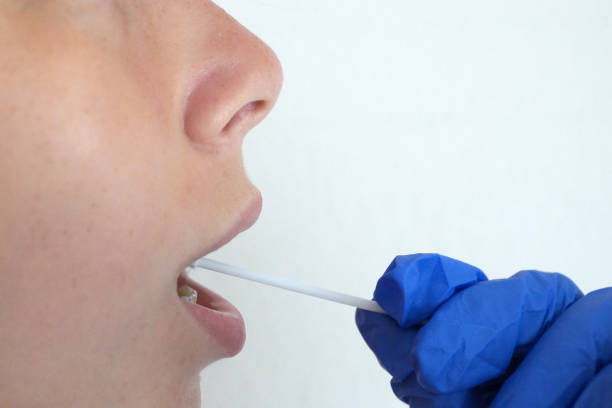Consumers who are given false reassurances about their future health from genetic testing services will receive better protection under new guidelines for this booming industry.
The rapidly growing market for ‘direct-to-consumer’ services, that offer testing for conditions like Huntington’s and Breast Cancer, is currently unregulated and can raise unnecessary concerns or offer false hope to patients without clinical support.A new framework, published today by the Human Genetics Commission (HGC), aims to ensure that the public have confidence in genetic testing kits. It will require companies to follow basic principles of consent, data protection, truth in marketing, scientific rigour and balanced interpretation.Key principles include:Tests for serious hereditary diseases – like Huntington’s and Breast Cancer – should only be provided with the offer of counselling both before and after testing.
Companies must make clear what the possible outcomes of taking a test are and what patients can do about it.
Simple, easy to understand information on how genetic testing works should be provided.
Claims made about tests should be supported by evidence, which is published in scientific journals.Dr Frances Flinter, the HGC Commissioner who chaired the international expert group that developed the principles, said:“Direct-to-consumer tests covering everything from hereditary illnesses to ancestry research are now available over the internet from companies in the USA and Europe. “Some tests can cause considerable surprise or concern to those taking them – or give false reassurance. Some are of doubtful value, to say the least. To cover this international market we need a set of ‘off the shelf’ principles that can be used everywhere.”Public Health Minister Anne Milton said: “People deserve to have confidence that the tests they choose are evidence based and that they fully understand what the results mean.“I am pleased that the UK’s Human Genetics Commission is showing much-needed leadership in cracking down on this.”“These principles are a timely, appropriate and proportionate response to the growth in the direct-to-consumer genetic testing industry and I hope they bring much needed reassurance to patients.”Many companies are now offering to test large numbers of genes whilst making claims that the tests will allow people to stay one-step ahead of possible illness and disease.However, there is concern that some tests may be not be precise, have little basis in science and offer false hope to consumers, while vast amounts of sensitive personal genetic information is being accumulated and stored. The Principles were developed with representatives from the international genetic testing industry and represent a high level of consensus about what constitutes good practice. They offer a guide to consumers, as well as service providers and regulators, about the elements that should make up a good quality direct genetic testing service. They cover all aspects of direct-to-consumer genetic testing services including the marketing and advertising of tests, information for consumers, consent, the laboratory analysis of biological samples and the levels of support that should accompany the genetic test results. Notes to editors1. The Human Genetics Commission is funded by the Department of Health and is the UK Government’s advisory body on developments in genetics and their implications for individuals and society.2. In June 2008, the HGC convened a meeting of service providers, patient representatives, professional bodies and others from around the world to discuss the state of the market and share concerns. The consensus emerging from that meeting was that there was a need for common guidelines to promote high standards and protect the interests of consumers. Following that meeting, the Human Genetics Commission (HGC) convened an international expert working group to develop a ‘Common Framework of Principles’ for direct-to-consumer genetic tests.3. The HGC expert working group that developed the principles included representatives from the direct genetic testing industry, clinical and molecular geneticists, genetic counsellors, experts in regulation and those with experience in offering support to individuals with genetic conditions.4. The HGC held a consultation at the end of last year to gather views on a draft of the Principles. Responses were received from the industry from within the UK and abroad and from regulatory, professional and public bodies.5. The HGC has published two previous reports on direct-to-consumer genetic testing services, Genes Direct (2003) and More Genes Direct (2007).6. The Principles promote the following:Purchasers of tests to be aware of possible outcomes of taking a test – what they might expect to find out and what they can do about it.Tests for serious hereditary diseases – like Huntington’s and Breast Cancer – should only be provided with the offer of counselling both before and after testing.
People requesting tests should be provided with simple, easy to understand information on how genetic testing works and what the results mean.
Claims made about tests should be supported by evidence, which is published in scientific journals.
Companies should always make clear the limitations of the tests they provide and provide consumers with information about other factors that might play a role in the development of a condition, such as lifestyle and environment.
Companies offering services must take steps to keep DNA samples and genetic information secure, and to ensure that the sample provider have given consent for the tests to be performed.
Tests should be carried out by accredited laboratories that have approriate quality assurance procedures in place.7. Copies of the framework can be downloaded via the link below. 8. Media enquiries and requests for interviews to DH Newsdesk on 020 7210 5221
Human Genetics Commission (opens new window)
Crackdown on genetic test services


0 Comments